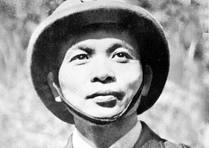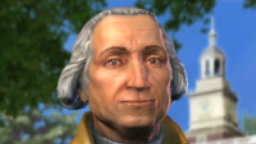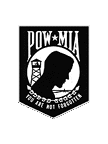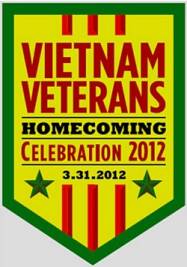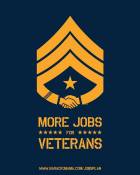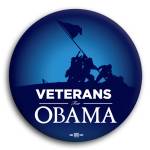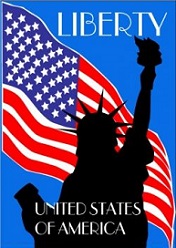Williams
Protracted war is the strategy of using time against the enemy. The theory of protracted war is divided into two primary forms of struggle -- political struggle and armed struggle. Political struggle utilizes diplomatic power, propaganda, and psychology as weapons against the enemy military, as well as the enemy people. Armed struggle consists of conventional military strategy, as well as guerrilla warfare. Conventional forces use the highest technology available to them, along with "limited offensive warfare." while guerrilla forces apply hit-and-run tactics, and set up ambushes to harass the enemy. Though separate ideas, political struggle and armed struggle function in unison, and are meant to always strengthen each other's actions toward the ultimate goal. Eventually, the enemy loses its will to continue the war. Protracted war is credited to have been first used in Vietnam during the 1st century, and has been waged by a variety of revolutionaries all over the world for hundreds of years.Throughout history, two of the most successful revolutionary generals to wage a protracted war are Vo Nguyen Giap and George Washington. Generals Giap and Washington can be compared to each other on multiple levels. First, neither man received the lessons of a protracted war through formal military education before being called to battle against the world's strongest militaries. Second, both men employed a similar protracted war strategy against their enemies. Finally, using a protracted war strategy, both men led their revolutionary armies to victory and gained independence for their countries. Vo Nguyen Giap and George Washington are two fine examples of revolutionary protracted warriors.
Vo Nguyen Giap respected those that came before him, and studied many ancient heroes of Vietnam, but had no formal military education other than brief guerrilla warfare training during the Second World War. Giap's career skyrocketed when he met Ho Chi Minh in 1940, and by 1945 he was leading the organized revolutionary force known as the People's Army of Vietnam. General Giap received his military education by reading the books of tactical geniuses such as Napoleon, Alexander the Great, and Julius Caesar. His political training came from reading works by men like Carl Von Clausewitz, Vladimir Lenin, and Ho Chi Minh. Giap also credits the works of Mao Tse-tung, Sun Tzu, and T. E. Lawrence as instrumental in his military training and knowledge of protracted war.
George Washington had no formal military training prior to succeeding his recently deceased brother as an adjutant in the Virginia militia. Through experience, the young Virginian quickly learned the lessons of protracted war theory. Washington was hastily commissioned and sent into the Ohio Valley during the French and Indian War. As per his orders by Virginia governor Robert Dinwiddie, Major Washington recruited members of the native Indian population to aid him. Later as a Colonel riding with General Braddock, Washington learned by Braddock's errors. Braddock was mortally wounded during an Indian ambush that came as a result of a lack of flexibility, lack of maneuverability, and lack of knowledge of the terrain. Washington learned the power of diplomacy and propaganda during his years spent in the Virginia House of Burgesses.
The diplomatic portion of the protracted war is political struggle. Political struggle is not exclusive to politics, and also includes "psychological, ideological, sociological, and economic" factors, as well. Political struggle is divided into three main bodies -- action among the people, action among the enemy military, and action among the enemy people. Action among the people is intended to organize the local populations and use them as a political force. Action among the enemy military is meant to attack the enemy by convincing their soldiers to defect, desert, or become sympathetic to the revolutionary cause. Action among the enemy people is designed to spread dissent among the enemy population through propaganda and other means.
"Words become weapons, and ambiguities confuse the target people. They see no end to the fighting, no respite from the killing, and no positive gains as the result of battles and campaigns. They begin to question the motives which led to the war and the truthfulness and competency of the leaders conducting it. Soon they question the morality of the war, and then the war becomes no only unwinnable but immoral as well, providing the justification and excuse for surrender to the enemy."
Vo Nguyen Giap understood that he could not achieve a military victory over the United States. The North Vietnamese general knew that in order to win the war, North Vietnam would have to outlast the US. Realizing he could not outlast his enemy economically or militarily, Giap opted to try and outlast the US political resolve to fight the war. Giap was aware of the American distaste for long wars, so US opposition to the war would become the focal point of his political struggle. The US would then be forced into "a political battle to control the sentiments of its own citizens."
George Washington also realized he could not completely defeat his enemy on the battlefield. The colonial general was aware of his army's minute chances of victory, and hoped to force Britain into a political compromise. As British casualties and expense began to rise, members of the British Parliament would begin to weigh the cost of war to keep the colonies against the prospect of American independence. "Slowly but surely, the British Parliament grew weary of the seemingly unwinnable war."
The military portion of the protracted war is armed struggle. Armed struggle combines conventional military and guerrilla tactics with terrorism. It has many military factors including major attacks, guerrilla raids, and sapper assaults. Infrastructure including roads, bridges, and ports are also subject to attack and destruction. Armed struggle begins by challenging the stronger enemy with evasive guerrilla warfare tactics. Parity is eventually achieved, as the strong get weaker and the weak get stronger over time, leading to a combination of conventional and guerrilla tactics. Ultimately, the revolutionary forces become stronger than the enemy, and wages massive conventional offensives until the enemy is defeated.
General Giap organized his armed strategy into two tactics. The first was coordinated fighting using a medium-sized attack force against important enemy targets. The second was independent fighting involving small-scale units against unimportant enemy targets. Both were intended to harass the enemy, and attack it psychologically, as well as militarily. Giap had four basic military principles. "If the enemy advances, we retreat. If he halts, we harass. If he avoids battle, we attack. If he retreats, we follow."
General Giap began his armed struggle against US troops in 1965 by launching guerrilla attacks against the American air base at Pleiku and helicopter base at Camp Holloway. Both attacks were extremely successful, causing 137 US casualties and the loss or damage to twenty-six aircraft. These attacks were quickly followed by a quick strike on the US enlisted men's dormitory at Qui Nhon, which brought a further forty-four American casualties. The combined attacks tested the United States' resolve in Vietnam, and led America to increase its direct involvement in Indochina.
Phase two of Giap's armed struggle is demonstrated in the 1968 Tet Offensive. North Vietnamese Army troops and Viet Cong guerrillas positioned themselves to attack cities and bases in South Vietnam. Sapper units infiltrated towns -- concealing weapons and supplies among farm produce and equipment. These units struck during a planned cease-fire to celebrate the Lunar New Year known as Tet. The attack was a complete surprise to US forces. Close to forty cities and villages were simultaneously attacked by regular army and guerrilla forces, while insurgent groups attempted to sway local southern populations. Major southern cities such as Hue and the southern capital of Saigon were attacked. While the Tet Offensive was ultimately a victory for the United States, Hanoi and Giap were able to turn it into a political victory for the North. The battle marked a turning point in the war.
The third and final phase of General Giap's armed struggle came the 1972 Easter Offensive. General Giap left a single division to guard the North, while sending twenty divisions to attack the South. Approximately 125,000 men, supported by sophisticated armor and artillery, invaded South Vietnam with the intention of splitting the region in two. The offensive consisted of three simultaneous major attacks. In the northern portion of South Vietnam, the provincial capital of Quang Tri City was attacked. In the central portion, the cities of Kontum, Pleiku, and Binh Dinh were attacked. In the south, An Loc, Loc Ninh, and Saigon were attacked, along with the south's center of rice production -- the Mekong Delta. As with the Tet Offensive, the Easter Offensive was a tactical defeat that was turned into a political victory for the North Vietnamese Army. The attack was the last major military action of the Second Indochina War.
General Washington did not have an immediate plan when he was given command of the Continental Army in 1775. The newly appointed general knew he had to exploit the strengths of his collection of militias, and the weakness of the mighty British army. Washington quickly developed a defensive strategy of countering aggressive British movement. In an attempt to develop a consistent plan of action, he set up a central position to block enemy advancement into the interior. Washington wanted to avoid direct contact with the enemy as much as possible, and corner them with the intention of delivering "a decisive offensive blow whenever the British overreached themselves."
George Washington's armed struggle began with the siege of Boston and the Battle of Bunker Hill in April of 1775. Colonial militiamen had the British garrison in Boston surrounded and under siege. As additional British troops attempted a flanking maneuver to secure high ground near the city, a unit of New Hampshire militiamen defended Bunker Hill from multiple attacks that were supported by field and naval artillery. By the third attack, the New Hampshire militia was forced to retreat due to lack of ammunition. The British suffered 1,154 casualties taking the hill, including several officers, while the New Hampshire militiamen lost an estimated 125 men. Throughout the remainder of the war, the Colonial Army "became fixated on forcing similar encounters while the British did everything to avoid them."
The Battle of Saratoga in 1777 launched the second phase of Washington's armed struggle. The British had initiated a campaign intended to take the war into Canada. Colonial militia forces slowed the Redcoat movement by sabotaging roads and bridges leading to the Hudson, and harassing them with hit-and-run attacks. Snipers were ordered to focus on British officers and artillerymen. The English suffered heavy losses at Freeman's Farm and Bemis Heights, and retreated north until they were blocked at Saratoga. American forces quickly outnumbered and surrounded the British, who were forced to surrender. The Battle of Saratoga gave the French government confidence in colonial resolve and capabilities, leading to France's direct involvement in the war.
The third phase of General Washington's armed struggle came together with his 1781 attack and siege at Yorktown, Virginia. With French infantry and naval support, Washington laid siege to 8,000 British soldiers and sailors. Washington ordered siege lines to be dug toward the enemy defensive positions, forcing the British to break their lines and consolidate their forces to attempt a breakout. The American and French lines held and the entire British force was obliged to surrender. Though minor skirmishes continued, the Battle of Yorktown spelled the end of the American Revolution.
Vo Nguyen Giap led the Viet Cong guerillas and North Vietnamese Army to eventual victory against the United States. His protracted war carried on until American public opinion of the war forced its government to reevaluate its involvement in Indochina. Finally, after eight years of fighting, the US removed its troops from Vietnam. Two years later, North Vietnam completed its revolution by defeating the minimal forces of South Vietnam, and unifying the country under a single flag. General Giap became minister of defense in the new government, and later was named deputy premier until retiring in 1980. Vo Nguyen Giap is still alive, and continues to live in Vietnam.
George Washington led the colonial militia and United States Army to eventual victory against Britain. His protracted war carried on until the British Parliament was forced to reevaluate its involvement in North America. After six years of bloodshed English resolve for the war waned. Two years later, a peace treaty was finally signed, and Britain agreed to recognize American independence. General Washington went on to become the first president of the United States. He died on September 16, 1799.
Vo Nguyen Giap and George Washington are national heroes in their countries for waging successful revolutionary wars for independence. With no formal training, they waged protracted wars against mighty militaries. Their tenacity outlasted determined governments, causing them to second-guess themselves. Vo Nguyen Giap and George Washington should forever be remembered as classic protracted warriors.
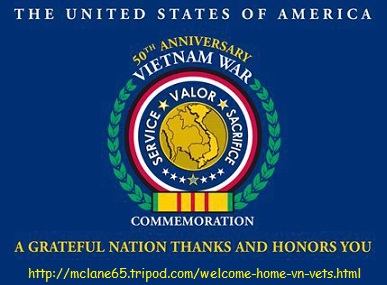
BIBLIOGRAPHY
Davidson, Phillip B. Vietnam At War: The History 1946-1975. New York: Oxford University Press, 1988.Fleming, Thomas. Liberty! The American Revolution. New York: Viking, 1997.
Lengel, Edward G. General George Washington: A Military Life. New York: Random House, 2005.
MacDonald, Peter. Giap. New York: W. W. Norton & Company, 1993.
McCullough, David. 1776. New York: Simon & Schuster Paperbacks, 2005.
Pike, Douglas. PAVN: People's Army of Vietnam. Novato, CA: Presidio Press, 1986.
Savas, Theodore P. and Dameron, J. David. A Guide to the Battles of the American Revolution. New York: Savas Beatie LLC, 2006.
"The American Revolution." < http://www.americanrevolution.com >
Venanzi, Gerald S. "Democracy and Protracted War: the Impact of Television." Air University Review. January-February, 1983.
Wikipedia contributors, "Battle of Saratoga," Wikipedia, The Free Encyclopedia, http://en.wikipedia.org
Wikipedia contributors, "Giap," Wikipedia, The Free Encyclopedia, http://en.wikipedia.org
Wright, Robert K. Jr. and MacGregor, Morris J. Jr. Soldier-Statesmen of the Constitution. Wash. D.C.: United States Army Center of Military History, 1987.
